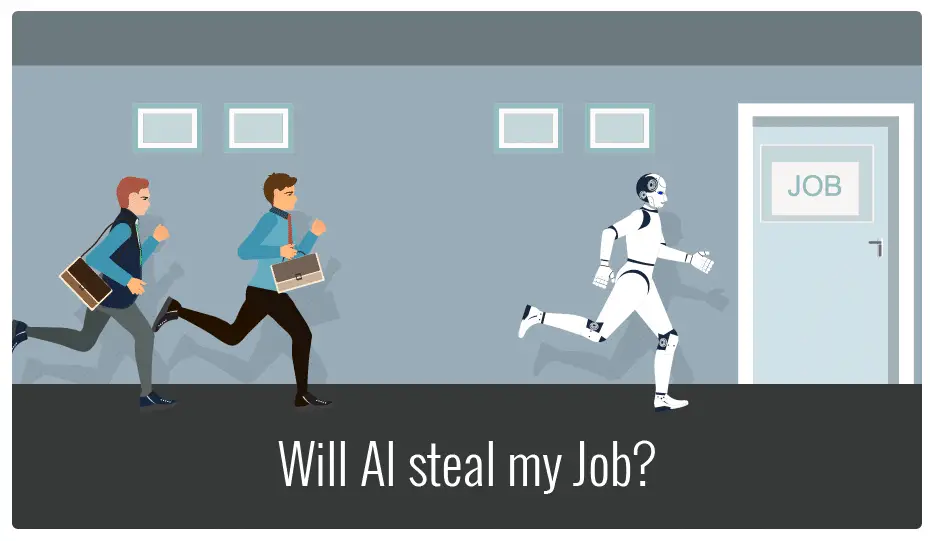For years, we’ve been bombarded with headlines like “Robots Will Replace Humans!” and “AI is Coming for Your Job!” The fear of automation isn’t new. Ever since the Industrial Revolution, machines have been taking over repetitive tasks, changing the way we work. But here we are in 2025, and while AI has become more advanced than ever, it hasn’t led to mass unemployment.
So, what’s the real story? Is AI a threat to your job, or is it simply another tool in the workplace evolution? Let’s dive deep into the reality of automation, the jobs at risk, the ones that are safe, and how you can future-proof your career.
The biggest misconception about AI is that it’s here to wipe out jobs entirely. While automation has indeed replaced some tasks, it has also created new industries, new roles, and new opportunities.
Let’s take a quick look at history:
📌 In the 19th century, factories replaced hand-weaving with machines, and many artisans feared unemployment. But industrialization led to an explosion of new jobs in manufacturing, transportation, and engineering.
📌 In the 20th century, ATMs were introduced, and people thought bank tellers would disappear. Instead, banks hired more customer service representatives to offer personalized banking services.
📌 In the early 2000s, the rise of e-commerce threatened traditional retail jobs. But online businesses created demand for digital marketers, web developers, and supply chain specialists.
The same pattern is happening with AI. Some jobs are being automated, but new jobs are being created just as fast—if not faster.
According to the World Economic Forum, AI will replace around 85 million jobs by 2025. Sounds scary, right? But here’s the good news: AI will also create 97 million new jobs in fields that didn’t exist before. That’s a net gain of 12 million jobs.
So, instead of asking “Will AI take my job?”, the better question is: “How can I adapt to this AI-driven world?”
Let’s be honest—some jobs are more vulnerable to automation than others. AI excels at tasks that are repetitive, predictable, and data-driven. These include:
🚨 Data Entry & Administrative Roles – AI-powered software can handle large amounts of data much faster and with fewer errors than humans.
🚨 Telemarketing & Customer Support – AI chatbots and voice assistants are replacing entry-level customer service jobs.
🚨 Manufacturing & Assembly Line Jobs – Robots have been taking over factory jobs for decades, and automation is making production even more efficient.
🚨 Retail Cashiers – Self-checkout machines and AI-driven retail experiences are reducing the need for human cashiers.
🚨 Basic Accounting & Bookkeeping – AI-powered accounting software can now automate tax filing, invoice management, and expense tracking.
That doesn’t mean these jobs will disappear overnight, but they will require workers to develop new skills to stay relevant.
AI is powerful, but it still lacks human creativity, emotional intelligence, and critical thinking. Jobs that require these skills are much harder to automate:
✔️ Creative Professions – Writers, designers, musicians, and artists may use AI tools for assistance, but their unique creativity remains irreplaceable. AI can help generate ideas, but it lacks originality and emotional depth.
✔️ Healthcare Professionals – AI is making breakthroughs in diagnostics, but doctors, nurses, and therapists are irreplaceable due to their human judgment, decision-making, and ability to provide compassionate care.
✔️ Teachers & Educators – AI can help personalize learning experiences, but it cannot replace the human connection that teachers provide. Emotional intelligence, mentorship, and adaptability are key aspects of education.
✔️ Trades & Skilled Labor – Plumbers, electricians, carpenters, and mechanics perform hands-on work that requires adaptability. Robots might assist in the future, but they won’t fully replace these roles anytime soon.
✔️ Mental Health & Social Work – AI can analyze mental health trends, but it cannot replace the empathy and human connection needed in counseling and therapy.
✔️ AI & Robotics Specialists – Ironically, the people who develop and maintain AI systems are in high demand. If you can’t beat AI, join it!
The key to surviving in an AI-driven world isn’t resisting change—it’s adapting. Here’s how you can stay ahead:
🔹 Embrace Lifelong Learning – The best way to stay relevant is to keep learning. Take online courses, attend workshops, and develop new skills in AI, data science, and digital literacy.
🔹 Develop Soft Skills – AI is great at calculations, but it lacks emotional intelligence. Focus on critical thinking, problem-solving, communication, and leadership—skills that machines can’t replicate.
🔹 Work with AI, Not Against It – AI isn’t replacing humans—it’s augmenting our abilities. Learn how to use AI tools to improve efficiency in your field, whether it’s marketing, finance, or healthcare.
🔹 Stay Adaptable – Job roles will continue to evolve. The ability to adapt and pivot to new opportunities will be crucial in the AI era.
🔹 Consider a Career in AI – If you’re tech-savvy, there’s no better time to jump into AI development, cybersecurity, or robotics. The demand for AI experts is skyrocketing!
The biggest takeaway? AI isn’t the enemy—it’s a tool. Just like calculators didn’t replace mathematicians and Photoshop didn’t replace artists, AI won’t replace humans entirely.
Instead, the future of work will be a collaboration between humans and AI. AI will handle repetitive tasks, allowing us to focus on creativity, problem-solving, and making meaningful connections.
So, will AI take over your job? The truth is, only if you let it. If you embrace change, adapt, and develop skills that AI can’t replicate, you won’t just survive—you’ll thrive in the AI-powered future.
The real question isn’t whether AI will replace you, but whether you’re ready to evolve with it. 🚀
